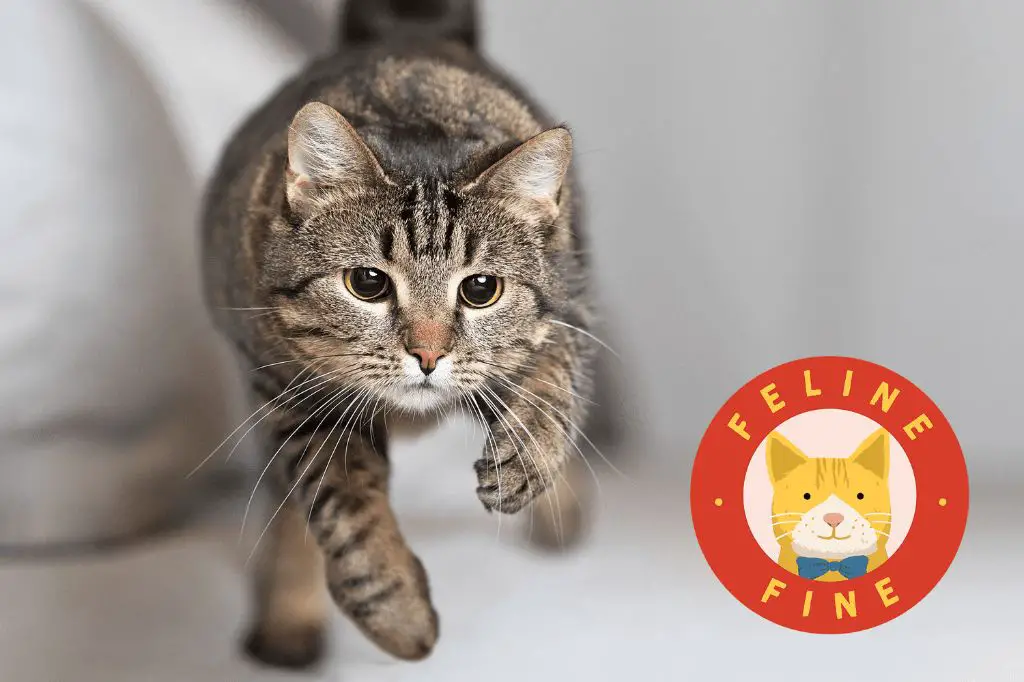Do Cats Recognize Their Own Name?
Evidence shows that many cats are able to distinguish their own name from other words and sounds. A 2019 study published in Scientific Reports found that cats reacted more strongly when their owners spoke their names versus other words of a similar length and accentuation [1]. The cats’ ears and heads moved more in response to their names, indicating greater recognition.
However, the ability to recognize their name varies between breeds and individuals. For example, Oriental cats responded most strongly, while Siamese and Ragdoll cats did not show selective responses to their names [1]. Kittens that are trained through repetition are more likely to respond to their name as adults.
Cats that have a close bond and positive relationship with their owner are also more likely to recognize and respond to their name being called. The cat’s name becomes associated with rewards like food, play, and affection from their trusted human.
Cats Respond to Their Names
Cats do often respond when their owners call their names, even if the response is subtle. According to a 2019 study in Scientific American, cats will turn their heads or perk up their ears when their names are called, indicating they recognize the sound.

Unlike responding to other words or sounds, cats appear to have a unique response reserved just for their names. They seem to associate their names with receiving rewards or affection from their owners.
However, the degree to which a cat responds to its name varies significantly by individual. Some cats come running every time, while others exhibit barely any response at all. A cat’s personality, relationship with its owner, breed, and training can impact how likely they are to react to their name.
Cats Associate Name with Rewards
Cats do tend to respond to their names, but not in the same way that dogs do. For cats, responding to their name is often driven by associating the name with an expected reward, rather than seeing it as referring to their identity.
Many cats will come when their name is called, especially if they have learned to associate their name with receiving a treat or petting. This is similar to dogs responding to their name, since they have also learned the name signals they will get praise or food.
However, cats don’t seem to inherently understand that the name refers specifically to them. Rather, they see the name as a signal that a reward may be coming, so they respond. But the name itself does not hold meaning to the cat as their own identity or designation.
Additionally, cats that do reliably come when their name is called tend to only do so if they expect a reward. If rewards are not consistently given when their name is called, the cat will likely stop responding over time.
Breed Differences in Recognizing Names

Cat breeds exhibit differences in their ability to recognize their names. In general, cats bred to be intelligent and active tend to be more responsive to their names. For example, Siamese cats, known for their vocal nature and inquisitiveness, often readily respond when their name is called. Other active, working breeds like Abyssinians and Bengals also tend to pick up name recognition more quickly.
On the other hand, breeds that are more laidback and bred to be lap cats, like Ragdolls and Persians, may be less motivated to respond consistently to their names being called. However, individual personality plays a big role as well. While the average Siamese may learn names faster than the average Persian, any individual cat within a breed can be either receptive or aloof to name training.
The Science Behind Cat Name Recognition
A cat’s ability to recognize its name is linked to intelligence, sociability, and breed. Part of a cat’s acoustic communication involves responding to auditory cues, including human voices and their own name.
Cats have an impressive acoustic range, capable of detecting frequencies from 55 Hz up to 79 kHz according to Wikipedia. This is significantly higher than the human hearing range. A cat’s sensitivity peaks between 4-10 kHz according to Louisiana State University, allowing them to hear the higher frequencies present in human speech.
Studies show intelligent and social cat breeds like the Siamese are more likely to recognize their name, while less social breeds like the Persian have poorer name recognition. This suggests cognitive ability and desire to communicate with humans play a role in name learning.
Repetition and positive reinforcement are key to kittens and cats linking their name to responding to their human. Cats learn to associate their name with rewards or attention. With time and patience, most cats can learn their name means they are being addressed/summoned.
Kittens Learn Names Through Repetition
Name recognition develops over time for kittens. Unlike dogs, cats do not have an inherent ability to understand that they have specific names from birth. Instead, kittens learn to recognize their names through consistent repetition and positive reinforcement over days, weeks, or even months (source).
Kittens are generally easier to train than adult cats when it comes to learning their name. The ideal time to start teaching a kitten its name is between 8-16 weeks old. At this young age, kittens are especially receptive to learning through positive associations. Consistently pairing the kitten’s name with rewards like treats, pets, and playtime helps the kitten make the connection faster (source).
Starting training early and being patient are key when teaching a kitten its name. With regular repetition and rewards, most kittens will learn to recognize their name within 2-4 weeks. However, each cat learns at its own pace, so adjust training based on the individual kitten.
Best Practices for Teaching Cat’s Name
The most effective way to teach a cat its name is through positive reinforcement training. This reward-based method associates the cat’s name with something positive. To implement this:
Use reward-based training methods. When you say the cat’s name, immediately give them a treat or petting to create a positive association. Say the name consistently right before presenting the reward. Over time, the cat will learn that responding to their name leads to good things.
Be consistent in using name. Stick to one name and avoid nicknames. Say the full name clearly every time you call the cat. Consistency helps the cat learn that the specific name refers to them.
Start training in a quiet room without distractions. Say the cat’s name, then immediately reward with a treat when they look at you. Increase distance and use different locations as training progresses. Eventually call the cat’s name when they are in another room or outside.
Keep training sessions brief, about 10-15 minutes. End on a positive note with the cat responding correctly. Multiple short sessions are more effective than one long session.
Remain patient and positive. Some cats may take weeks or months to learn their name. Praise and reward any response to their name, no matter how small. With time and consistency, the cat will connect their name to focus on you.
Sources:
https://www.zoetispetcare.com/blog/article/how-teach-cat-name
Signs Your Cat Knows Its Name
There are some telltale signs that indicate your cat recognizes its name. One of the most obvious is that your cat will turn its head or ears towards you when you call out its name. It is focused on the sound of its name and paying attention. According to research, 72% of cats turned their heads or perked up when their owners called their name, versus just 4% responding to a random word. [1]
Another sign is that your cat may actually get up and come over to you when you call its name. Your cat associates its name being called with rewards like feeding time, playtime, petting, or treats. So running over when named is called is often an attempt to get something positive. This is especially true for food-motivated cats. [2]

Your cat may also stop what it is doing and look at you when you say its name. If your cat is focused on something else like grooming, looking out the window, or playing with a toy, it will briefly shift its attention to you when it hears its name. Your cat knows that when its name is called, something of interest may happen next.
Individual Variation in Name Recognition
Cats display a range of individual differences when it comes to recognizing their names. Much of this comes down to the cat’s unique personality and experiences.
Shy, timid cats who are less socially inclined tend to be less responsive to their names compared to outgoing, people-oriented cats. Shy cats may perceive their name as threatening or stressful, whereas social cats see it as an opportunity for rewards and affection from their owner [1].
A cat’s age can also impact its ability to learn its name. Kittens have an easier time learning their names through repetition and positive reinforcement. Older cats may be less mentally flexible and therefore less trainable when it comes to name recognition [2].
While the majority of cats will learn their names to some degree, how they respond varies based on early life experiences and inherent personality differences between individuals. With patience and persistence, however, most cats can be taught to recognize their name.
Frequently Asked Questions
There are a few common questions people have around cats and their names:
Do cats really know their names or just sounds?
Research indicates that cats do actually recognize their names and not just sounds in general. A 2019 study by scientists in Japan found that cats’ brains processed their names differently than other random words or sounds (source). This suggests cats have learned to identify their name as referring specifically to them.
What’s the best way to teach a cat its name?
The best way is through positive reinforcement. Say your cat’s name immediately before giving them a treat or petting them. With time, they will learn to associate their name with receiving something positive. Say their name clearly and consistently each time. You can also try getting their attention with their name before feeding them.

At what age can cats learn their names?
Kittens as young as 8 weeks old can begin to learn their name. The most effective time is during the prime socialization window between 2-7 months old when cats learn fastest. With consistent training, most cats know their names solidly by 1 year old. However, keep reinforcing their name throughout their life.

